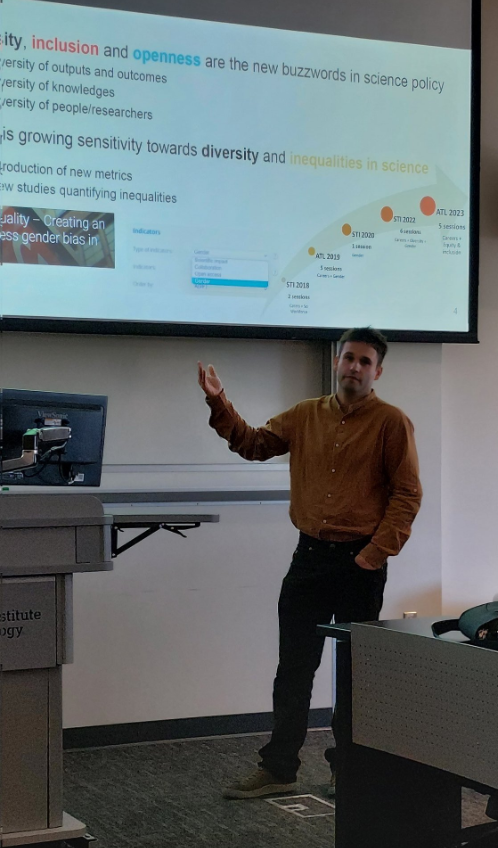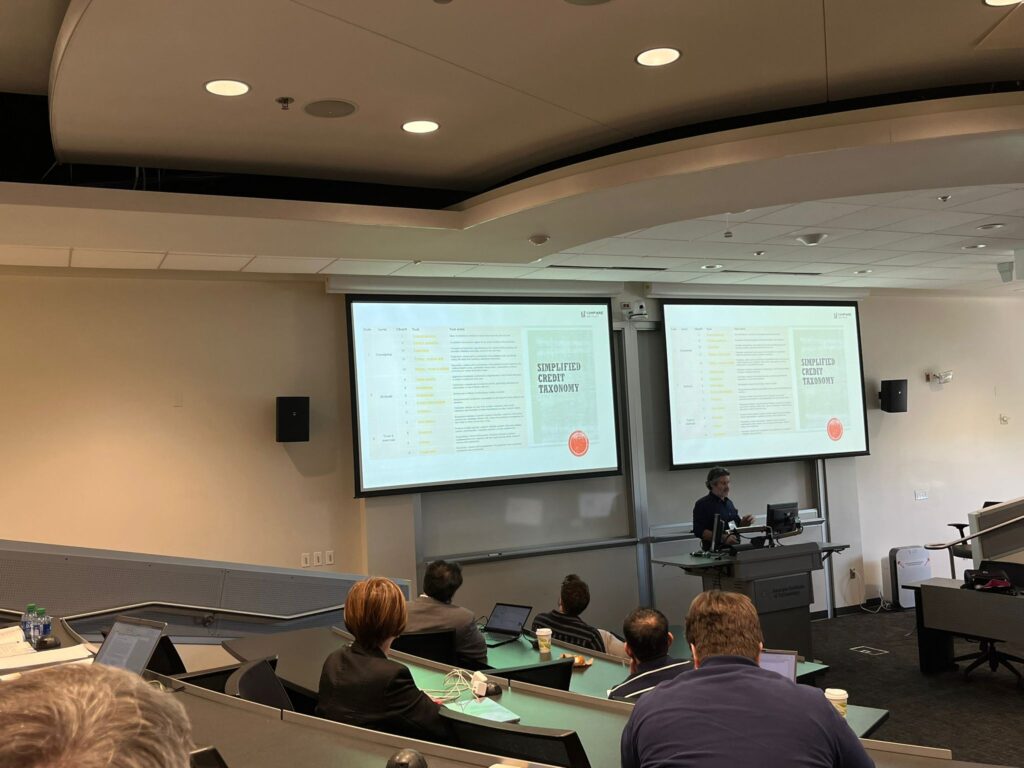The 9th Atlanta Conference on Science and Innovation Policy (ATLC 2023) was held between May 24th – 26th at the Georgia Institute of Technology. The COMPARE research project, represented in Atlanta by Nicolás Robinson-García and Francois Van Schalkwyk, took part in it by presenting the following pieces of work:

«Informetric methods for studying the diversity of the scientific workforce: towards a state-of-the-art», by Nicolás Robinson-García, Carmen Corona-Sobrino, Zaida Chinchilla-Rodríguez, Daniel Torres-Salinas and Rodrigo Costas.
Background and rationale Evaluative processes struggle with the notion of diversity of a scientific workforce (Walsh et al., 2019). Despite overwhelming evidence on the need for diverse teams in terms of division of labor (Robinson-Garcia et al., 2020), ethnic mix (Freeman & Huang, 2015) or gender (Díaz-García et al., 2013; Maddi & Gingras, 2021) among others, bibliometric methods have traditionally been focused on the development of impact and productivity indicators. Recently, the development of machine learning algorithms, new data sources and strong calls for action favoring an open and diverse scientific ecosystem, have given room to a stream of studies focused on studying different aspects of career trajectories, diversity of profiles or biases in science. In this paper we attempt at reviewing recent advances in the development of novel informetric approaches and methods to study diversity in science. Specifically, we focus on those related to the scientific workforce.
← Nicolás Robinson-García presenting his work at ATLC 2023.
«The division of scientific labour: an empirical view on contributions to global science from the periphery», by Francois Van Schalkwyk.
Acknowledged in the contribution dynamics of authorship is an asymmetry between the Global North and the Global South (also referred to as the ‘scientific periphery’) in the production of new knowledge. Marginson (2022) points to a dominant global discourse that frames science as a centre-periphery hierarchy. Baber (2003: 621) refers to a perpetuation of ‘an unstated but real global division of intellectual labour’. Others argue that theoretical and methodological innovations are considered legitimate tasks for Global North scholars while data collection is the designated role for those from the Global South. This paper examines the contribution of scientists from the Global South by relying on multi-authored scholarly publications to assess their changing contributions to global science over time. The focus on the contributions of scholars in the Global South in an asymmetrical global science system provides a unique and empirical perspective. It is a perspective that accounts for the networked nature of science that shapes the relative contributions to the global scientific network and provides important insights for funders and policy-makers seeking to establish equitable partnerships between the Global North and the Global South in global science.

